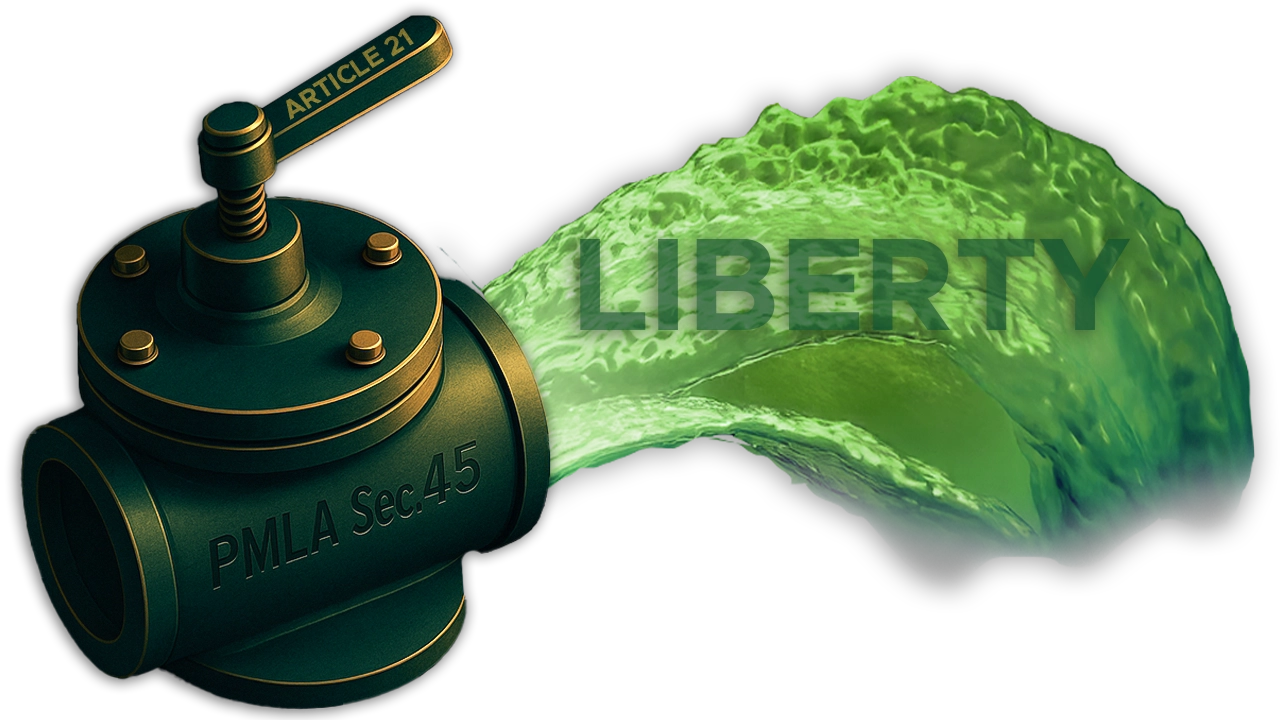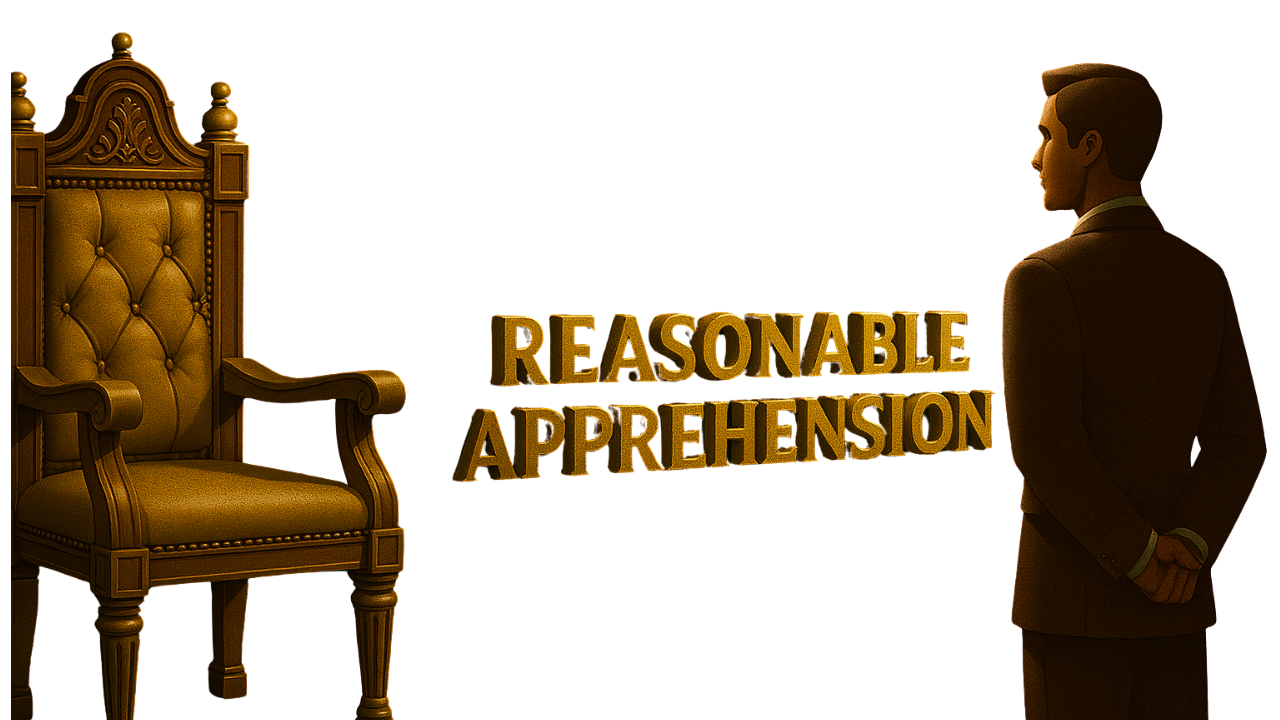Introduction
In the dynamic landscape of criminal jurisprudence, a fundamental challenge persists: ensuring the equitable application of the law even amidst allegations of grave financial misconduct. When investigative agencies exhibit apparent inconsistencies in their pursuit of justice—selectively sparing those with reportedly deeper culpability—it inevitably raises questions about fairness and non-discrimination. This precise dilemma recently came under judicial scrutiny when the Delhi High Court granted bail to three individuals—Vipin Yadav, Ajay, and Rakesh Karwa—in a significant money laundering case1. In its pronouncement, the court delivered a pointed observation, categorizing the ED’s2 failure to arrest the alleged main accused with a graver role as “manifestly arbitrary.”
The core issue before Justice Amit Mahajan was the bail application of the three accused who were implicated in a massive scheme that allegedly duped Indian citizens out of Rs. 641 crores through fake investment schemes and false jobs. A probe by the CBI had revealed that out of 937 bank accounts used in the fraud, 12 were managed and controlled by a group including the applicants. The court’s decision to grant them relief was fundamentally premised on the principle of parity, reasoning that “the benefit of parity cannot be denied to the applicants” when the investigative agency had chosen not to proceed against other individuals with seemingly greater involvement, or even those named for arranging “mule accounts.”
This judicial intervention is far more than an isolated bail order; it acts as a critical reminder of the constitutional mandate against arbitrariness that binds all state organs, including enforcement agencies. Consequently, this article will delve into a detailed analysis of the foundational principle of parity and non-arbitrariness upon which this pronouncement rests. Furthermore, it will meticulously explain the rigours of bail provisions in PMLA offences, particularly the strict twin conditions under Section 45, examining how the High Court navigated these stringent requirements to uphold the broader principles of justice and procedural fairness in the face of selective prosecution.
When examining a judicial decision that seemingly softens the rigorous non-bailable nature of an offense under thePMLA, the question inevitably arises: How does a court reconcile the strict ‘twin conditions’ of Section 45 with the broader right to liberty?
The pronouncement under discussion offers a compelling answer by anchoring its rationale in two foundational pillars: the principle of parity against arbitrary state action and the fundamental right to a speedy trial enshrined in Article 21 of the Constitution. The court’s primary challenge was the statutory bar under Section 45(1) of PMLA, which mandates that the court must be satisfied there are “reasonable grounds for believing that he is not guilty of such offence and that he is not likely to commit any offence while on bail.”
The Supreme Court, in Vijay Madanlal Choudhary v. Union of India3, upheld the validity of these stringent conditions, recognizing that money laundering is an “aggravated form of crime” requiring “effective and stringent measures.” Nevertheless, the court in that same case clarified that the judicial assessment should not “delve deep into the merits,” but merely form a view “based on probability on the basis of reasonable material.” Furthermore, the Supreme Court in Prem Prakash v. Union of India4 had already settled that Section 45 “does not rewrite the norm” that “bail is rule and jail is the exception,” but simply stipulates that bail is subject to the satisfaction of the twin conditions.
Yet, the most decisive factor in the present case was the manifest arbitrariness exhibited by the investigating agency. The court recognized that the benefit of parity could not be denied where the ED had failed to arrest an accused with a prima facie “graver role” than the applicants, and had not even arraigned a person named for facilitating the key “mule accounts.” While the ED relied on CBI v. V. Vijay Sai Reddy5 to argue that the non-arrest of a co-accused is an irrelevant consideration, the High Court astutely distinguished this, noting that the Supreme Court in that case merely found it irrelevant given the gravity of the role of the particular respondent therein, who was asserted to be the “brain behind the alleged offence.” In stark contrast, the role attributed to the applicants here was not graver than the main accused who remained un-arrested.
This reliance on selective prosecution as a ground for bail finds strong support in recent rulings, including Himansh alias Himanshu Verma v. Directorate of Enforcement6, where the Supreme Court granted bail solely because the “mastermind” had never been arrested. Coordinate Benches in cases like Bindu Rana v. Serious Fraud Investigation Office7 and Ramesh Manglani v. ED8 have similarly treated non-arrest of “similarly placed co-accused” as a significant factor, reinforcing the principle that manifestly arbitrary selective prosecution cannot be discounted.
Finally, there is the overarching constitutional consideration: Can statutory rigor indefinitely trump the right to personal liberty under Article 21? Even where the twin conditions are prima facie not satisfied, prolonged incarceration acts as a powerful countervailing force. The court cited a clear line of Supreme Court precedent, including Union of India v. K.A. Najeeb9, which held that courts are “ordinarily be obligated to enlarge” an accused on bail once it is “obvious that a timely trial would not be possible.”
This sentiment was powerfully reaffirmed in Mohd. Muslim v. State (NCT of Delhi)10 and Rabi Prakash v. State of Odisha11, both of which dealt with analogous stringent provisions (Section 37 of NDPS Act), observing that “prolonged incarceration overrides the twin conditions” as it “mutilates against the fundamental right” of an individual. Most recently, in V. Senthil Balaji v. State12The Apex Court underscored that “Inordinate delay in the conclusion of the trial and the higher threshold for the grant of bail cannot go together,” asserting that Section 45 cannot become a tool for “incarcerating the accused without trial for an unreasonably long time.” Given that the applicants had been in custody since late 2024 and early 2025, with the investigation in the predicate offense not yet concluded and an extremely large volume of witnesses and documents guaranteeing no possibility of a speedy trial, the court concluded that conditional liberty must take precedence over the statutory restrictions under Section 45 of PMLA.
Conclusion
The decision by the Delhi High Court, in granting bail to the three accused, ultimately transcends the specific facts of a single money laundering case to become a significant judicial assertion of constitutional checks on prosecutorial discretion. By granting relief on the dual grounds of parity and prolonged incarceration, the court effectively demonstrated that the stringent statutory barrier of Section 45 of PMLA is not insurmountable when facing the fundamental tenets of justice. The judgment highlights that an investigative agency’s power, however vital for combating grave crimes like money laundering, is not absolute. When the principle of non-arbitrariness is violated through selective prosecution—by sparing a “graver role” accused while rigorously pursuing others—the judiciary is obligated to step in. This creates a powerful precedent, reaffirming that the right to liberty under Article 21, particularly the right to a speedy trial, serves as a crucial constitutional safety valve that can “melt down” the rigors of special legislation.
The immediate implication of this ruling is a clear directive to the Enforcement Directorate and other similar agencies: consistency and fairness are not optional elements in the process of arrest and prosecution. The judiciary has signaled that future challenges to bail in PMLA cases will increasingly scrutinize the actions of the investigating body itself, moving beyond a mere prima facie assessment of the accused’s guilt to evaluate the equitable conduct of the prosecution. This will undoubtedly influence investigative strategies, compelling agencies to establish a justifiable, non-arbitrary rationale for their choice of whom to arrest, especially when dealing with complex syndicates where culpability is tiered. The judgment strengthens the defense’s position by formally recognizing that the manifestly arbitrary nature of a selective investigationcan be a decisive ground for granting bail, thereby bolstering the principle of ‘bail is the rule, jail is the exception’ even within the PMLA regime.
Looking ahead, this pronouncement raises profound questions that will shape the jurisprudence of economic offenses. Will this ruling usher in an era where the concept of “graver role” becomes a key metric for testing the non-arbitrary conduct of arrests, potentially compelling courts to conduct more detailed comparative analyses of the accused persons’ culpability at the bail stage? Furthermore, as investigative delays become a more frequent feature of complex financial cases, how long is “too long”—what exact duration of pre-trial incarceration will be deemed sufficient to override the Section 45 bar, especially for white-collar crimes that have high societal impact? Ultimately, the Delhi High Court’s decision serves as a powerful reminder that the legal battle against financial crime must always be waged within the boundaries of constitutional morality, ensuring that the pursuit of justice for the public does not come at the cost of individual liberty and procedural fairness.
Citations
- Prevention of Money Laundering Act,2002
- Enforcement Directorate
- Vijay Madanlal Choudhary v. Union of India : 2022 SCCOnLine SC 929
- Prem Prakash v. Union ofIndia through the Directorate of Enforcement : 2024 INSC 637
- CBI v. V. Vijay Sai Reddy : (2013) 7 SCC452
- Himansh alias Himanshu Verma v.Directorate of Enforcement : 2024 SCC OnLine SC 4697
- Bindu Rana v. Serious Fraud Investigation Office : BAIL APPLN.3643/2022
- Ramesh Manglani v. ED : (2023) 7 HCC (Del) 134
- Union of India v. K.A. Najeeb AIR 2021 SC 712,
- Mohd. Muslim v. State (NCT of Delhi): (2023)18 SCC 166
- Rabi Prakash v. State of Odisha : 2023 SCCOnLine SC 1109
- V. Senthil Balaji v. State : 2024 SCC OnLine SC 2626
Expositor(s): Adv. Anuja Pandit






